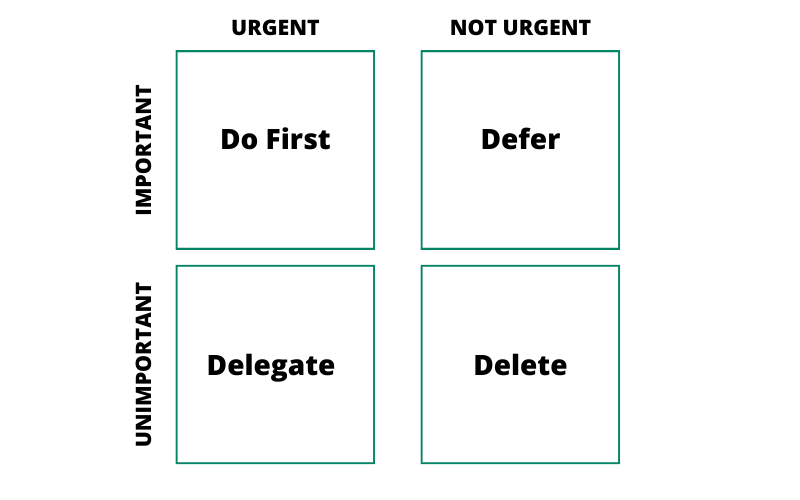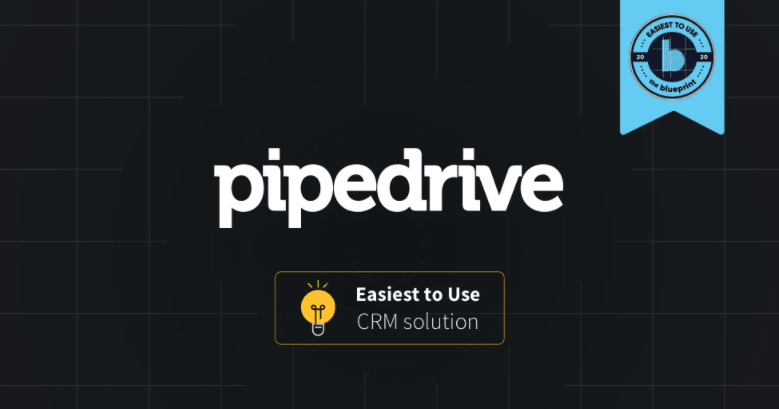I remember the day I got my real estate license and was assigned my desk at my sponsoring broker. “Finally, I made it…,” I thought. As I sat at my desk, opening up my laptop, I froze. What am I supposed to do? I was like, “Great, I got my real estate license now what?”
My experience isn’t an isolated event. Every year, many new real estate agents find themselves in the exact same situation. Shoot, you found this page likely because you’re asking yourself the same question.
In this post, we’re covering:
- What new real estate should be doing
- Where your focus should be on your first 30 days, 90 days, and one year
- The biggest skill factor that separates successful agents from those who quit after a year
- What new real estate should NOT be doing
Let’s get started.
My First Year As An Agent
The advice I’m sharing with you comes from my own experience as a new real estate agent. In my first year as an agent, I became a “rising star” at my brokerage.
I sold 30-plus units my first year as a new real estate — all without an assistant.
This isn’t to brag, but to give you an understanding of where this advice comes from. I believe you have to be very careful who you take advice from, especially on the internet.
Would you ask a fat dietician for advice if you’re trying to lose weight? Maybe, but the irony shouldn’t be lost on you.
It’s the same with real estate. Should you take advice from someone that was unable to produce significant results in their first year as a real estate agent? Maybe, but be cautious.
Find A Sponsoring Broker
Okay, if you haven’t already, your first step, once you get your real estate license, is to find a sponsoring broker. By law, all licensed real estate agents are required to work underneath a sponsoring broker.
At this stage, do some basic online research of real estate brokers in your area. Your goal is to generate a list of potential places you could work. Don’t worry about researching them, yet. Just gather their names and contact information in a spreadsheet or on a piece of paper.
Next, go through and do some research on these brokerages. Try to uncover information like commission rates, new agent training, potential for leads, and company culture, and so on.
Ideally, you should be able to filter your list down to a handful of real estate brokers. Three to five is great.
Once you have your handful of real estate brokers, it’s time to set up some interviews to verify your research and find the sponsoring real estate broker that is right for you.
This process is very personal. At the end of the day, the best real estate broker is the one that is best for you. It’s the one where you believe you will get the most value for the lowest cost. And, it’s the brokerage you believe will help you succeed in your real estate career.
So, once you have your real estate broker picked out, what’s next?
What Should New Real Estate Agents Do?
The First 30 Days
The first 30 days are survival mode. It’s like trying to drink out of a fire hydrant. There are a lot of things that you need to do — from training, to onboarding tasks, to generating leads, and so much more.
With all of the to-do’s, it’s really easy to get overwhelmed.
Take a deep breath. Count to ten. It’s all okay. Positive vibes.
In the first month as a new real estate agent, the most critical tasks are those associated with marketing and sales.

Your biggest goal in your first 30 days is to get leads and convert them into a listing agreement or buyer agreement.
Remember… We are in survival mode. At this point, you probably spent around $500 to $1,000 getting your real estate license, depending on your state.
Now, the clock starts ticking. Every month money is coming out of your bank account for MLS membership fees, desk fees, technology fees, or whatever else you’re being charged for.
Your bank account is bleeding money. Plug the gaps and start bringing money in. That HAS to be your only goal.
Focus on generating leads.
Dealing With Imposter Syndrome
An objection I hear from new agents when I share this advice is: “what about all of the training on how to fill out purchase agreements and stuff?”
One reason this occurs is because of imposter syndrome. These new agents feel like they can’t and shouldn’t go out there and sell their services if they don’t even know how to complete a purchase agreement.
They feel like an imposter.
I get it.
A way to overcome this is by trusting in your broker and selling your broker. You probably don’t know how to fill out the most basic real estate forms, but your broker does and so do the agents in your office.
Someone from your office will help you when you need it.
Do NOT wait until you stop feeling like an imposter to go out there and generate leads.
Work on your mindset, trust your broker, and go out there and generate leads.
Am I telling you to skip your training? No. Take the classes, but don’t lose focus on your most important tasks.
I’ve seen too many real estate agents spend 30 to 60 days trying to learn all these things about real estate that they never start generating leads.
At this point, they are in a HUGE cash flow deficit. They paid their membership dues and other fees for two months.
Assuming it takes 30 days to get a client and another 60 to close that client, then these agents don’t have cash coming in until month four or five.
That’s a lot of cash leaving the bank account without any money coming in. It’s enough to make a lot of agents worry and start reconsidering their decision to be a real estate agent.
Lead Generation For New Agents
When it comes to lead generation, your strategy is to go where the fish are. Go where the ready-to-buy-now leads are.
These include lead generation strategies, such as:
- Open Houses
- Floor Time
- Broker-Provided Leads
- Referral Leads From Agents or Other Platforms
Your marketing efforts need to cost very little money. They should be channels where you can put in sweat equity. You use your time rather than money.
With all effort, you must conserve cash in the first few days of being a new real estate agent. That’s why I recommend channels like open houses or floor time.
There are plenty of lead generation strategies for getting your first real estate client.
Broker-provided leads and referral leads cost money, but usually you pay it on the back end. You pay after closing. These kinds of lead generation strategies still minimize your cash outflow.
Don’t get distracted by lead generation strategies like Facebook and Instagram. Yes, make the initial real estate announcement and occasional post.
But do not get lost here. Social media can end up being a massive time suck. You will feel like you’re doing something, but in reality you’re staying busy.
Social media strategies will get built out over the next 90 days and beyond. It’s not an area of focus in your first 30.
The motto of your first 30 days is: “Cash today. Everything else tomorrow.”
Learn To Convert Leads to Clients
Once you start generating leads — whether strangers, friends, or family — you need to learn to convert those leads into clients and closings.
To convert leads, you need to understand the primary question they’re asking themselves… “Can you help me solve my real estate needs?”
You need to provide an overwhelming PROOF that you can help them sell their home or buy a new one.
Some ways to create this kind of proof is through:
- Reviews
- Case Studies
- Testimonials
- Connecting Authentically and Emotionally
Seth Godin said it best, “People do not buy goods and services. They buy relations, stories, and magic.”
One of the best ways to create magic, tell a story, and build relations is through your real estate agent bio.
Your bio could be on your Facebook, LinkedIn or traditional profiles, like Realtor or Zillow.
Your profile can be used to attract leads AND convert leads.
I’ve used my profile to attract leads to me and generate over $100,000 in GCI in my first few years as an agent.
Agent Profile Blueprint Course
Build an agent profile that allows you to earn more, spend less time marketing and create a near “set it and forget it” strategy. In the Agent Profile Blueprint, you will learn:
-
- How to use your agent profile to earn more while selling less, even if you don’t consider yourself a writer or have gotten stumped by writer’s block in the past.
- The real reasons your friends decided to work with another real estate agent, even though you’ve know them for 15+ years.
- Why your current lead generation methods aren’t producing the production volume you really want
- The biggest mistake most real estate agents make in their agent bio that INSTANTLY turns away potential leads and clients and what to do instead.
Your agent profile is a conversion point. It helps your lead generation efforts. Imagine you do an open house and you pass out your business card.
That home buyer is thinking about hiring an agent. They start doing some research on potential agents. Since they have your business card, they decide to Google you and look you up.
What are they going to find?
Do they find a boring, generic agent profile? Or something that gives leads a REASON to hire you. In our Agent Profile Blueprint course, it’s all about discovering the reason homeowners should hire you. It becomes your elevator pitch, part of your bio, and in your listing presentations.
The right agent profile can serve as a conversion point and get these kinds of leads to contact you.
Many agents lose A TON of commissions because they have no idea leads are sitting in front of their computer doing this.
How Much Lead Generation Should New Agents Do?
A lot. Probably a lot more than you think. Your first 30 days should be an all out blitz. A majority of your time is spent generating leads through various strategies.
You’re trying to get clients and figure out what works FOR YOU.
The reality is that most new real estate agents underestimate the amount of effort that’s required to generate a client.
Example: In my first year as an agent, I tried generating clients from open houses. When I look back at my numbers, it took me 20 open houses in my market and with my strategy to generate a closed transaction.
20 open houses.
That’s a large effort. I know some agents who can get a client from a single open house, but these agents usually hold mega-open houses. They still put a huge amount of effort into getting a client.
In my first year, I held 3 to 4 open houses every single week. It was a lot and took up most of my Sundays.
But, this is the kind of effort that’s needed in your first 30 days and first year.
What About Social Media or My Friends?
You’re going to hear advice about using social media and letting your friends know that you’re in real estate. You should do this, but don’t rely on it.
I wouldn’t spend too much time on this.
Rather, focus on going where the ready-leads are. They’re hanging out at open houses or submitting their contact information on platforms like HomeLight.
Making a post and blasting it to all of your friends might yield some results, but it should be thought of as icing on the cake and not the entire cake.
Think about it… you’re going to make a Facebook post and a majority of your network is (1) not even going to see it and (2) those who do, only a small portion are in the market to buy or sell a home.
Alternatively, you can sit on floor time and get people calling you who are looking to buy a home. I’d much rather talk to ready to go leads than hope my friends are in the market for a new home.
The First 90 Days
At this point, you should have some data on the lead generation strategies that work and those that don’t. You also have some ideas of the strategies you like and don’t like.
During these first three months, I would start to whittle away some of the lead generation strategies and focus on the three to five strategies that are producing results AND that you enjoy.
One of my biggest regrets is doing open houses for too long. It really caused me to hit a burnout point. It generated leads, but I didn’t like it.
I didn’t like being away from my family on the weekend and having limited time with my kids.
In addition to refining your marketing efforts, you should start thinking about some long-term things. The first 30 days were all about getting that first client. The next 60 to 90 are about setting the foundation of fundamentals.
Things to focus on and think about:
- Using a Customer Relationship Management, or CRM, software to follow up with leads
- Following up and nurturing your sphere of influence, friends, and family
- Profitability of your lead generation channels
- Getting better at the technical details of your local real estate market
- Networking with lenders, title companies, other agents, and vendors
- Tracking your numbers
Your green light benchmark at this point should be a few deals in the pipeline. Ideally, you would at least have three to five agreements and one client under contract.
Don’t lose sight though. Your lead generation efforts should still take priority over almost every other task.
Looking for a great real estate agent CRM? Try a 30-day trial for Pipedrive CRM.
Pipedrive CRM has won the award for the easiest to use software. Drive more revenue as a real estate agent with Pipeline. Pipeline CRM is great for:
- Managing your Sphere of Influence (SOI)
- Tracking the Transaction Management Process
- Converting leads to closed deals
Get Free 30-day trial. No Credit Card required
- Easy To Use
- Visual, Customizable Pipelines
- Affordable
- Cash flow
- Learning curve (like all CRMs)
The First Year As A New Agent
If you’ve been focusing most of your efforts on lead generation, you can begin to focus on other tasks. At this point, hopefully, you found a few lead generation strategies that work for you.
This should allow you to spend less time on marketing and free you up for many of the other tasks that real estate agents have to do.
During your first year, you should make a special effort to track and record your numbers, like the number of open houses, hours of floor time, number of leads, etc.
Your goal by the end of the year is to have specific activity-based results. For example, in my first year I knew that it took 20 open houses to make a sale.
When I was moving into my second year as a real estate agent, this made goal planning really easy. It felt like I was in control of my income rather than just hoping for the best.
So, for example, if I wanted to close 10 transactions for the year, I knew that I would need to hold 200 open houses throughout the year.
Of course, I would hope to improve the rate so it took less open houses to get a client. But, at least with my current metrics I felt like I could plan my income.
It no longer felt like a shot in the dark.
Towards the end of your first year, you should begin building and thinking about ways to nurture your sphere of influence and generate referrals from past clients. You should also focus on getting reviews from your clients to help build your agent profile.
Discernment: The Critical Skill
Ever hear of the Eisenhower Matrix or chart? It’s a chart with four quadrants. On the X-axis is the urgency of a task. On the Y-axis is the importance of a task. The chart yields four categories every task falls under.
- Important and Urgent: Do First
- Important and Not Urgent: Schedule or Defer
- Urgent and Not Important: Delegate
- Not Urgent And Not Important: Delete It

How does all of this apply to real estate? Because, your ability to properly discern where various tasks fall in this chart is the difference between success and failure in your first year as a real estate agent.
It’s one of the most critical skills. The agents who can properly place tasks in the correct quadrant do far better.
Let me give you a mistake I see a lot of agents make. Early on, they will mistake an important and not urgent task for an important and urgent task.
The easiest example is training. Specifically, learning how to complete a purchase agreement. They want to be ready for when they have a client. So, they spend more time being ready for a client than actually getting a client.
These real estate agents end up working hard and staying busy, but have no results to show for it. Training is important, but the urgency doesn’t increase until you have a lead or a client.
At that point, learning how to fill out a purchase agreement goes from an important and not urgent task to an important and urgent task.
Tasks Will Shift
In your first few days and months as a real estate agent, your most important and urgent task is lead generation. As you start to get leads and clients in your pipeline, the importance and urgency of lead generation shifts a bit.
It becomes a little less urgent. You have some money coming in. When you’re new, there is a huge urgency because you have a lot of money coming out of your bank account every month.
If you understand this principle, you will see it’s really what I outlined in this entire post. I added other tasks as time went on. Lead generation became less urgent. Other tasks became more urgent.
As you move throughout your career, you need to properly discern where each task falls.
What Should New Real Estate Agents NOT Do?
Real estate agents shouldn’t do any task that is unimportant and not urgent. They should think twice about doing anything that is urgent but unimportant.
Some tasks that I catch agents doing that they shouldn’t worry about within their first year:
- Too much focus on their business card design
- Social media marketing and posting. A few posts are fine, but some put too much focus on it
- Long term marketing channels like farming, social media ads, real estate SEO, and more
- Getting lost in education. Looking for the “best” answers. Just go out there and do it.
Really, anything that isn’t lead generation should be scrutinized. Real estate agents fail because there isn’t enough cash coming in and too much is going out.
Final Words: I Got My License Now What?
As a new agent, you want to do an all out blitz when it comes to lead generation. Your single biggest goal is to close the gap between money going out and money coming in.
In your first few months, cash is flowing out. By getting leads and clients, you can start to turn that into a positive number and have more money coming in. It’s the cash in flows that allow agents to stick it out in the long term.
Go where the leads are. Find the lead channels that work for you and that you like. Track your numbers so that you can optimize and focus as the year goes on. This will free you up a bit from lead generation and allow you to focus on other tasks that are necessary as a real estate agent.
Agent Profile Blueprint Course
Build an agent profile that allows you to earn more, spend less time marketing and create a near “set it and forget it” strategy. In the Agent Profile Blueprint, you will learn:
-
- How to use your agent profile to earn more while selling less, even if you don’t consider yourself a writer or have gotten stumped by writer’s block in the past.
- The real reasons your friends decided to work with another real estate agent, even though you’ve know them for 15+ years.
- Why your current lead generation methods aren’t producing the production volume you really want
- The biggest mistake most real estate agents make in their agent bio that INSTANTLY turns away potential leads and clients and what to do instead.





